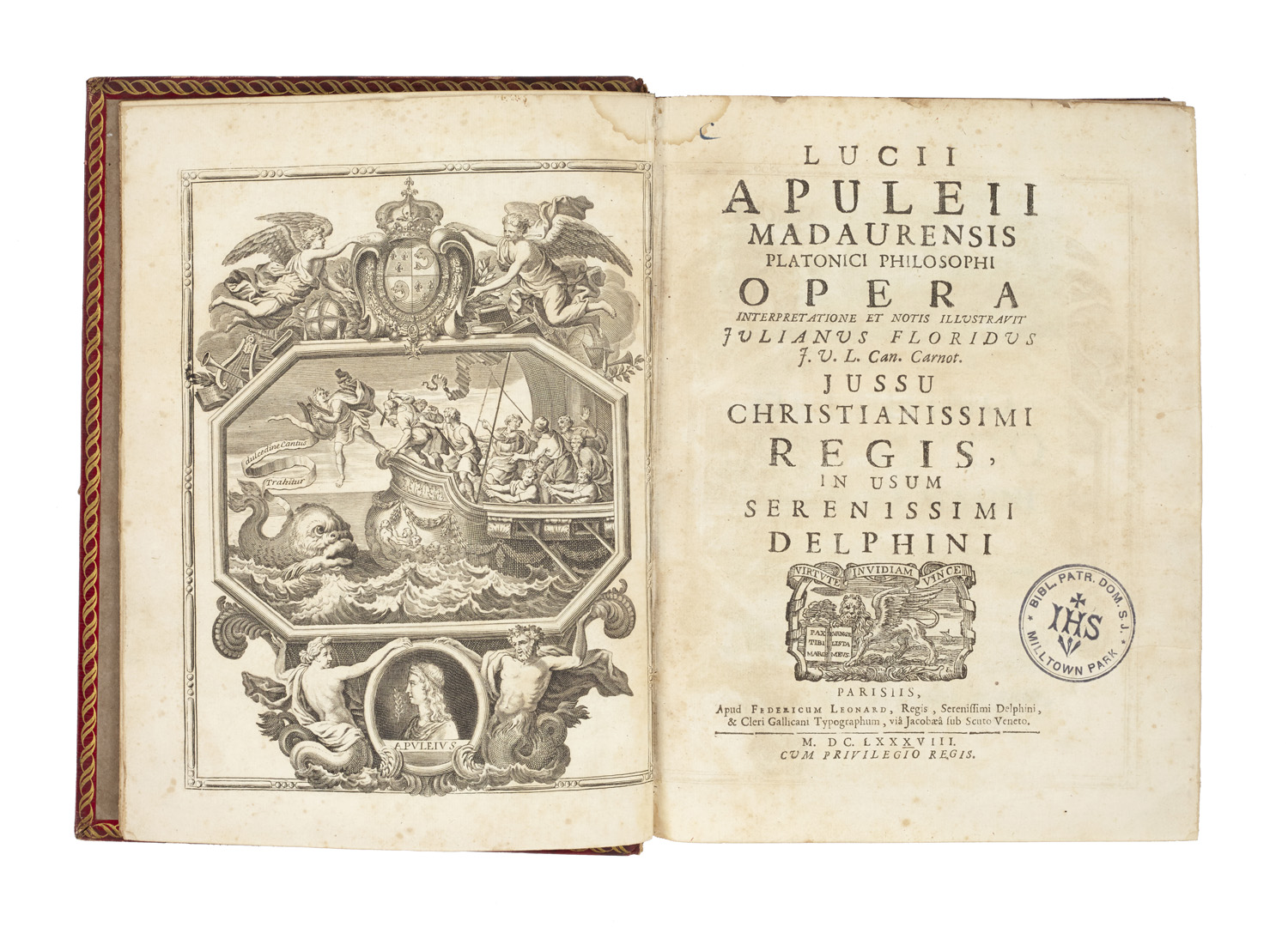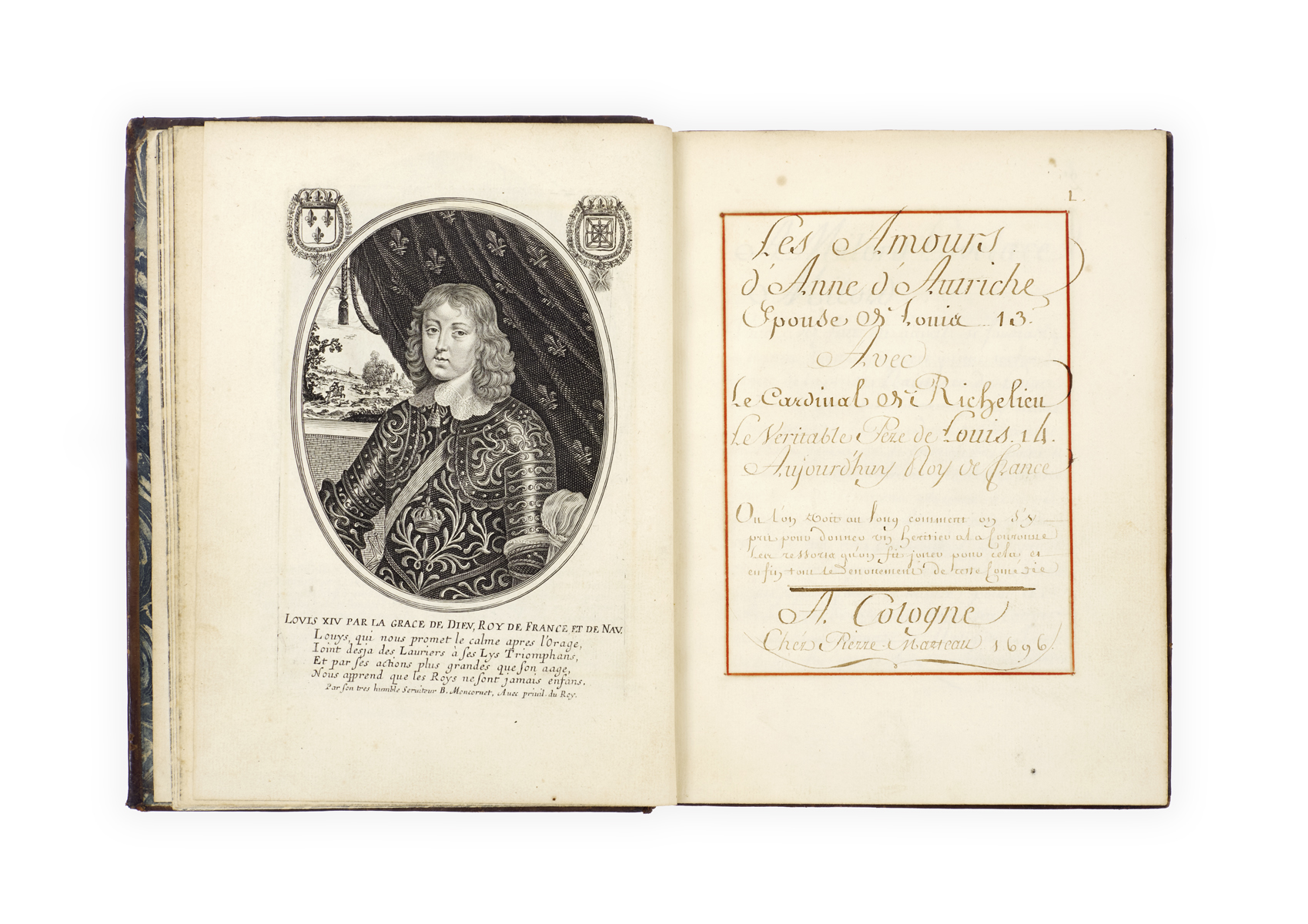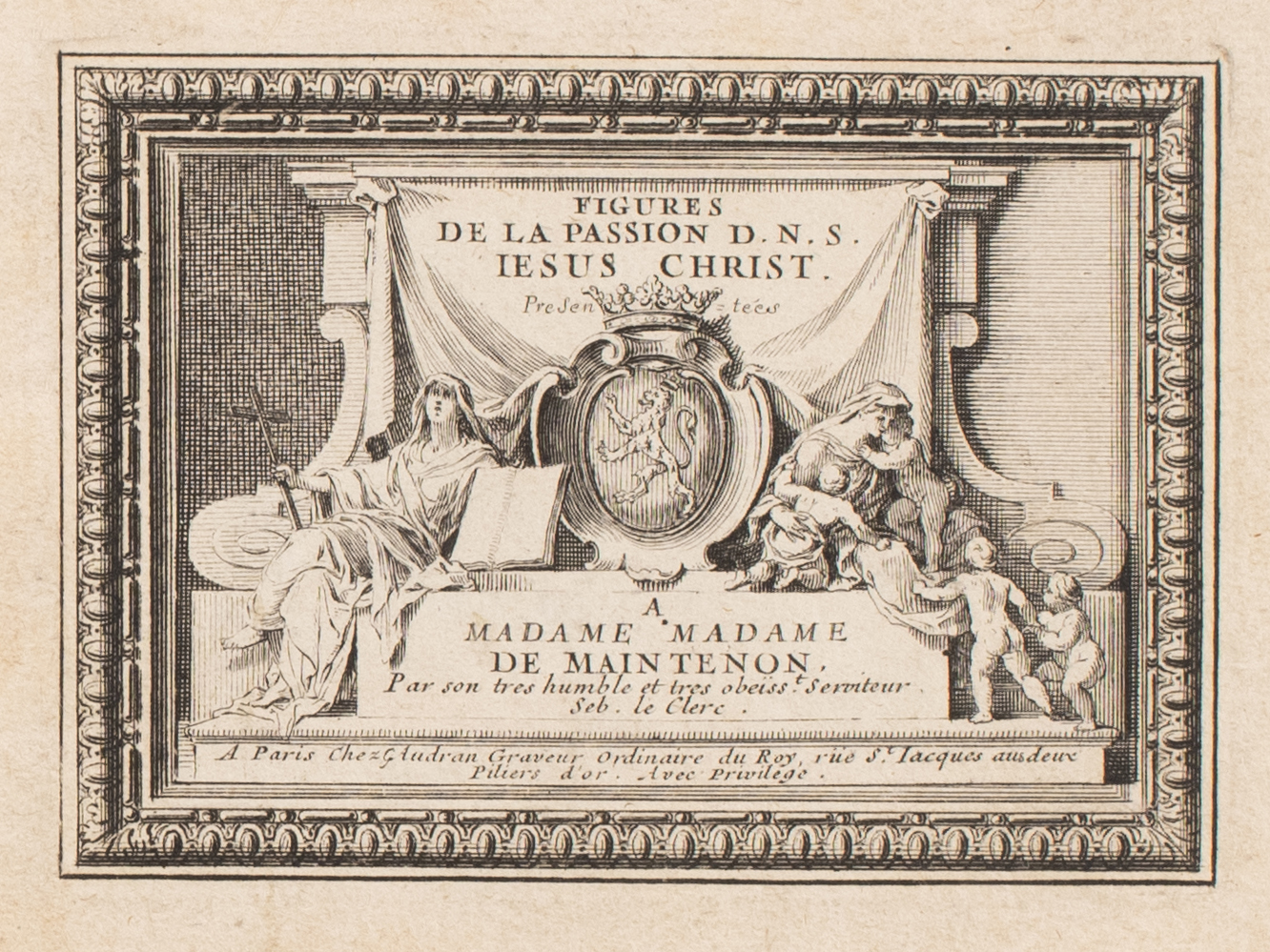
APULEIUS (Julien FLEURY, editor).
Lucii Apuleii Madaurensis Platonici philosophi opera interpretatione et notis illustravit Julianus Floridus ... in usum serenissimi Delphini.
Paris, Frederic Leonard, 1688.
Two vols in one, 4to, pp. [xlviii], 564, [2, title to ‘tomus alter’), 565-848, 256 (indexes); engraved frontispiece, woodcut device to title, head- and tail-pieces and initials, engraving of sistrum to p. 64, diagram to p. 638; small damp stain at upper inner corners of first few leaves, occasional light damp staining to upper margins elsewhere most noticeably to pp. 201-256 of the indexes, small loss at lower blank corner of L2, occasional very light toning or foxing, otherwise a good copy; early 19th-century red morocco, spine gilt and lettered in compartments, gilt edges; spine sunned, extremities slightly worn, a few abrasions to covers; book labels of William O’Brien and Milltown Park library to front pastedown and Milltown ink stamp to title; annotation to p. 833.

Added to your basket:
Lucii Apuleii Madaurensis Platonici philosophi opera interpretatione et notis illustravit Julianus Floridus ... in usum serenissimi Delphini.
First Delphin edition of the works of Apuleius, ‘une des meillures éditions qui soient dans la collection des Ad usum’ according to Brunet, comprising the Metamorphoses, his popularisations of Platonic philosophy, and excerpts from his lectures known as the Florida. The Delphin classics were a landmark series of editions of Latin classical texts prepared between 1670 and 1698 for the use of the Grand Dauphin, the son of Louis XIV of France, editions which combined scholarship with high standards of production. Passages deemed to be obscene were expurgated and added as an appendix (here pp. 833-844). A 19th-century owner of this volume has added an apposite quote from Byron’s Don Juan to p. 833: ‘For here we have them all at one fell swoop, / Instead of being scattered thro' the pages: / They shewed forth, marshalled in a handsome troop, / To meet the ingenuous youth of future ages.’
The present copy belonged to the Irish judge and renowned bibliophile William O’Brien (1832-1899), who presided at the trials arising from the infamous Phoenix Park Murders of 1882. He bequeathed his library to the Jesuit community of Milltown upon his death.
Brunet I, 363.

